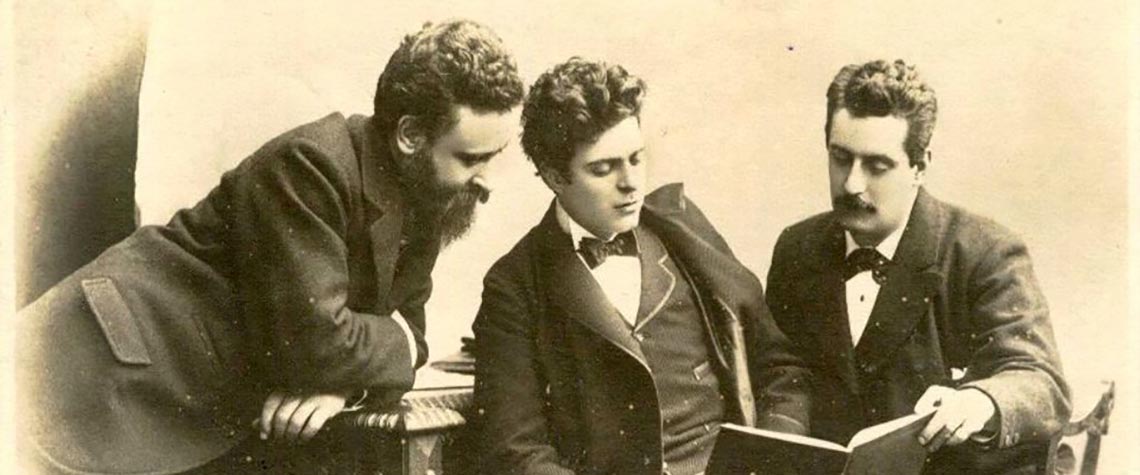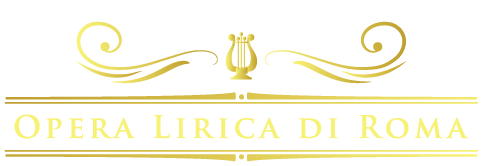Pietro Mascagni enjoyed immense success during his lifetime, both as a composer and conductor of his own and other people’s music. He wrote fifteen operas, an operetta, several orchestral and vocal works, and also songs and piano music. His 1890 masterpiece Cavalleria rusticana (1890) has marked the opera history and single-handedly ushered in the Verismo movement in Italian dramatic music. While it was often held that Mascagni, like Ruggero Leoncavallo, was a “one-opera man” who could never repeat his first success, L’amico Fritz and Iris have remained in the repertoire in Europe (especially Italy) since their premieres.
If Mascagni had long pauses on the creative level throughout his musical career, his work as an orchestra director was always intense and non-stop and began between the end of 1885 and the beginning of the following year. In 1912 Mascagni was also portrayed in a caricature published in Vanity Fair magazine in the very act of conducting the orchestra.
Mascagni was jealous of his own music and often at odds with prestigious conductors. It was so in 1898 for the debut of Iris in the Costanzi in Rome. Ricordi had chosen Edoardo Mascheroni. Mascagni protested openly and made sure that Mascheroni left the baton to him.
Guglielmo Ratcliff (1895), Le maschere (1901), Il piccolo Marat (1921), Pinotta (1932) and Nerone (1935) are just some of Mascagni’s operas that he himself directed in the years around the turn of the 1900s.
The Italian première of his opera Isabeau was held simultaneously at La Scala in Milan (conductor Tullio Serafin) and at La Fenice in Venice (conductor Mascagni) in 1912. On 28 March, he began to work on Parisina in Bellevue, near Paris, sometimes with his daughter Emi, his mistress Anna Lolli, and the librettist Gabriele d’Annunzio.
Parisina was premiered in Milan on 15 December of that year. Almost all the important Italian composers of the time were present, among them Puccini, Umberto Giordano and Riccardo Zandonai. The new work was premiered in Livorno and Rome in 1914. On 28 July occurred the events that shortly led to World War I: Puccini and Mascagni were against the involvement of Italy in this war, in which Mascagni’s son Dino was later made a prisoner and died in Somalia in June 1936.
In 1930, Mascagni conducted La bohème in Torre del Lago, as a homage to Puccini, who had died in 1924. In 1940, celebrations for the fiftieth anniversary of Cavalleria rusticana took place all over Italy, often with Mascagni conducting. The opera was recorded for La Voce del padrone (“His Master’s Voice”) at La Scala under the direction of Mascagni, who recorded a special spoken introduction. In April 1943, Mascagni appeared for the last time at La Scala to conduct L’amico Fritz. By that time he had to conduct sitting on a chair.


